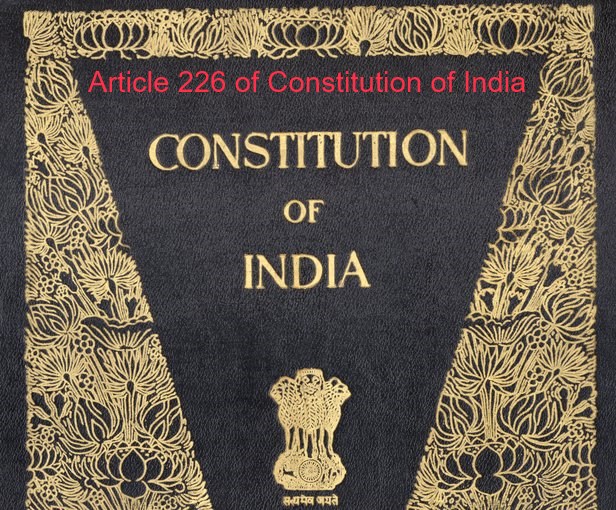A petition filed challenging an award passed by the Lok Adalat is maintainable under Article 226 of the Constitution of India in the context of Article 12 of the Constitution of India and the scope of the power under Articles 226 and/or 227 of the High Courts. This was decreed by the Chief Justice, Hon’ble Mr. Justice Jitendra Kumar Maheshwari in the case of Munni Devi and Others vs. Dul Dul Prasad and others [WP(C) No. 21/2019] on the 02nd of July 2021, in the Hon’ble High Court at Sikkim.
The brief facts of the case are, petitioner No.1 is a wife of the defendant no.1. It is their grievance that they are deserted by defendant no.1 and the suit property in which they are residing has been partitioned without joining, noticing them and affording opportunity in violation of the principle of natural justice. The property in question belonged to the father of the respondent, after whose death, the property was divided between four brothers. It was observed that the petitioner had raised the construction on the said property and was residing there and to oust her, the said suit and compromise was entered into. The present petition is filed urging that without joining the proper parties and adjudicating the issues involved in the facts of the case, a decree has been obtained by virtue of the impugned settlement of the Lok Adalat Award which may be set aside.
The learned counsel for the respondent submits that the present petition is not maintainable under article 226 and 227 since the power conferred must be used sparingly. He further submitted that respondent nos.1 to 4 has referred various paragraphs of the writ petition and relief clause to submit that the Writ in the nature of mandamus/certiorari against private party is not maintainable. Furthermore, Article 226 is different from the scope of Article 227 of the Constitution of India and by joining the private party until public duties they are discharging the Writ cannot be entertained. The counsel for petitioner however, argued that the petition is maintainable by relying on judgements passed by the supreme court in State of Punjab and Anr. vs. Jalour Singh & Ors. reported in (2008) 2 SCC 660.
The learned judge analyzed the question of maintainability of the petition by relying on the judgement in State of Punjab and Anr. vs. Jalour Singh & Ors. reported in (2008) 2 SCC 660 wherein, the court held that, “It is true that where an award is made by the Lok Adalat in terms of a settlement arrived at between the parties (which is duly signed by parties and annexed to the award of the Lok Adalat), it becomes final and binding on the parties to the settlement and becomes executable as if it is a decree of a civil court, and no appeal lies against it to any court. If any party wants to challenge such an award based on settlement, it can be done only by filing a petition under Article 226 and/or Article 227 of the Constitution, that too on very limited grounds. But where no compromise or settlement is signed by the parties and the order of the Lok Adalat does not refer to any settlement, but directs the respondent to either make payment if it agrees to the order, or approach the High Court for disposal of appeal on merits, if it does not agree, is not an award of the Lok Adalat. The question of challenging such an order in a petition under Article 227 does not arise. As already noticed, in such a situation, the High Court ought to have heard and disposed of the appeal on merits.”
Thus, the court held that the petition is maintainable as there is no cable of doubt that the Award of the Lok Adalat can be assailed by way of petition under Articles 226 and/or 227 of the Constitution of India. The court considered the merits of the case and recorded that the partition order assailed by the Lok Adalat cannot be sustained in the eyes of law since all the parties were not a part of the suit and were not provided an opportunity to be heard and that is improper and violated the principles of natural justice. The Writ Petition was allowed, the Award passed by the Lok Adalat stands set aside.


